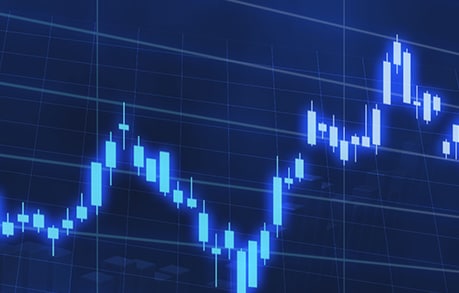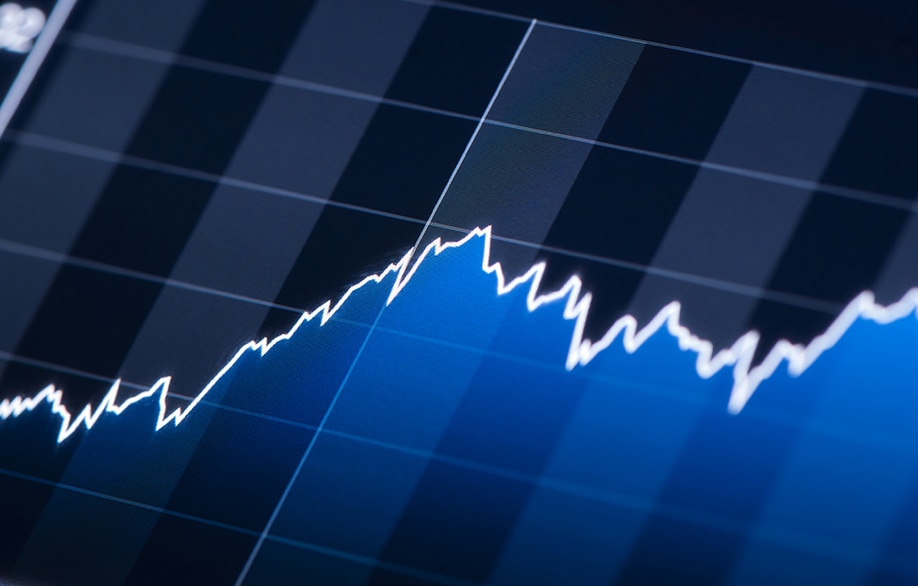
- 25 Oct 2019
- By Dave Lerman
Volatility Percentile Rankings in The Real World— Case Studies
Several years ago, I participated in a conference call with a broker and one of his larger clients. They witnessed the market treading water for months and volatility creeping lower and lower with each passing week. The client and broker decided to sell a large number of straddles in the SP 500 futures to take advantage of the time decay inherent in straddle selling. They asked my opinion on the strategy. Since CME staff can’t recommend strategies…to do them or not to do them...I had to limit my comments to general statements. I mentioned that “each morning I run volatilities in the SP 500 futures options. On that morning volatility was running at 7.1 percent. The lowest it had been in the last decade was 6.9 percent. In fact, at 7.1 percent, it was in the 2nd percentile. 98 percent of the time volatility is higher than 7.1 percent and when volatility heads higher, it has a negative impact on short straddles. Statistically speaking, the odds are against you. But vol could remain low and the strategy would be profitable in that case. But probability is not working in your favor.”
A week later the market plunged and volatility went from the 2nd percentile to the 90th in 5 trading days. The straddle would have lost substantial sums of money in a short period of time. The puts and calls exploded in premium terms. Vol percentile rankings would have helped determine if this strategy had acceptable odds for success.
Another case involves investors getting lulled into selling volatility in quiet markets. Some investors think that low volatility can go on for long periods of time and the time decay capture is worth the risk. While this may be true in some cases, over the decades, volatility has exhibited mean reverting character. Low vol will increase toward its average and high vol will decrease toward its average. In the 2nd half of 2018, implied volatility in Natural Gas options hit historic lows of just under 20 percent with the underlying NG contract trading between $2.70 and $3.00 MMBtu. As winter was approaching, temperatures in the Midwest and Eastern part of the United States grew significantly colder than normal. At the same time storage levels of Natural gas were extremely low. The two proved to be a volatile combination as Nat Gas rallied from under $3.00 to over $4.70. Implied volatility doubled from 19.17 percent about 40% and then exploded to over 120 percent in the Oct/November time frame. The effect on options premiums was enormous. Investors that were long premium had exceptional profits. Hedge funds and traders that sold at historic lows learned a painful and expensive lesson as they were forced to cover shorts at much much higher levels. See figure 7 below.
| Date | NG Futures | ATM Implied Vol | 3.50 NG Call (premium terms) | 3.50 NG Call in ($ terms) |
|---|---|---|---|---|
| Thu, Nov 01, 2018 | 3.241 | 40.35 | 0.1481 | $ 1,481.00 |
| Fri, Nov 02, 2018 | 3.288 | 40.36 | 0.1621 | $ 1,621.00 |
| Mon, Nov 05, 2018 | 3.569 | 47.09 | 0.3037 | $ 3,037.00 |
| Tue, Nov 06, 2018 | 3.563 | 46.06 | 0.3028 | $ 3,028.00 |
| Wed, Nov 07, 2018 | 3.559 | 45.90 | 0.2935 | $ 2,935.00 |
| Thu, Nov 08, 2018 | 3.546 | 46.14 | 0.2779 | $ 2,779.00 |
| Fri, Nov 09, 2018 | 3.720 | 52.47 | 0.3927 | $ 3,927.00 |
| Mon, Nov 12, 2018 | 3.794 | 54.89 | 0.4459 | $ 4,459.00 |
| Tue, Nov 13, 2018 | 4.125 | 65.51 | 0.7440 | $ 7,440.00 |
| Wed, Nov 14, 2018 | 4.871 | 99.71 | 1.4690 | $ 14,690.00 |
| Thu, Nov 15, 2018 | 4.041 | 89.24 | 0.7173 | $ 7,173.00 |
| Fri, Nov 16, 2018 | 4.284 | 98.20 | 0.9257 | $ 9,257.00 |
| Mon, Nov 19, 2018 | 4.709 | 125.07 | 1.3095 | $ 13,095.00 |
| Tue, Nov 20, 2018 | 4.521 | 116.06 | 1.1226 | $ 11,226.00 |
| Wed, Nov 21, 2018 | 4.472 | 117.05 | 1.0953 | $ 10,953.00 |
| Fri, Nov 23, 2018 | 4.349 | 109.37 | 0.9710 | $ 9,710.00 |
At the opposite end of the spectrum would be initiating long strategies in high volatility environments. The current state of implied volatility in British Pounds is an excellent example. 8.46% volatility ranks in the 50%th percentile. Half the time its higher, half lower. But with all the excitement and market swings in the wake of the Brexit proposal, implied volatility reached 19 percent in October 2019. The only time vol was higher in British Pounds was in June of 2016 when the citizens of the United Kingdom voted to leave the European Union (it reached 30% on the announcement). In the three-year implied volatility percentile rankings, GBP implied vol is now in the 99th percentile. It is lower 99 percent of the time. Hence, any long initiated from this lofty premium level face tough headwinds in the probability department. Lower volatility will bring lower premiums.
Anyone can trade a straddle or strangle or any other options strategy from the long or short side. But doing the trade in the correct volatility environment will be a key determinant in your success rate. You want probability working for you not against you.
Buy low, sell high pertains to volatility levels too.
Use Volatility Percentile Rankings as a tool or gauge to screen for certain trade strategies. They can be used as a risk management tool as well.
If you want to “short” premium, consider doing so when volatility is high…above the 75%TILE Remember, percentile rankings are only one tool. Just because volatility carries a low Percentile rank, doesn’t mean that it can’t go lower. High volatility can sometimes go higher as well!
Moreover, even if you are fortunate enough to buy volatility in the lower percentile rankings, you still must deal with time decay issues and choosing appropriate strikes & strategy. Keep in mind that options are four dimensional instruments—it’s not only the up and down movement in the underlying that matters, but time to expiration as well as volatility. It’s more work—more plates to keep spinning, but the additional strategies available to options traders are worth the effort.
About CME Group
As the world’s leading derivatives marketplace, CME Group is where the world comes to manage risk. Comprised of four exchanges - CME, CBOT, NYMEX and COMEX - we offer the widest range of global benchmark products across all major asset classes, helping businesses everywhere mitigate the myriad of risks they face in today's uncertain global economy.
Follow us for global economic and financial news.
Pricing, Volatility & Strategy Tools
Calculate fair value prices and Greeks on CME Group options, chart volatility and correlations, and test strategies in simulated markets

